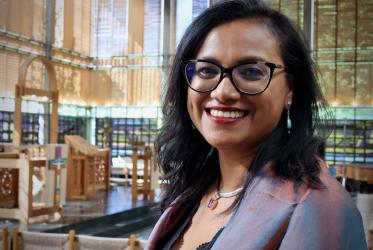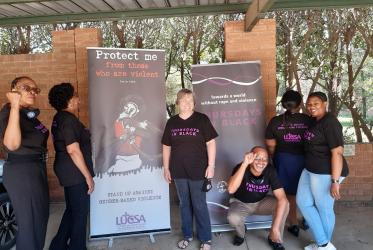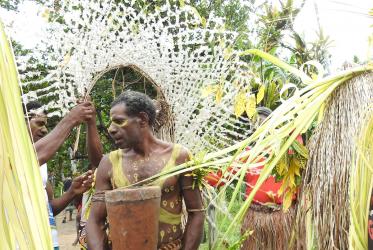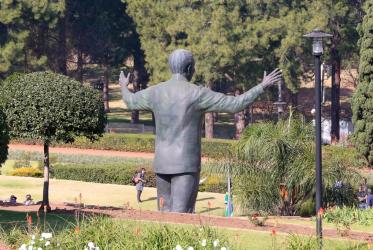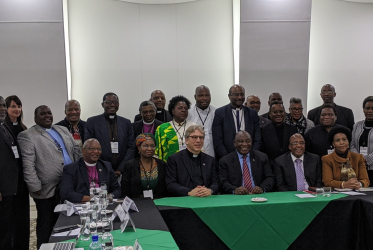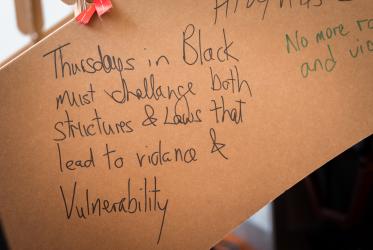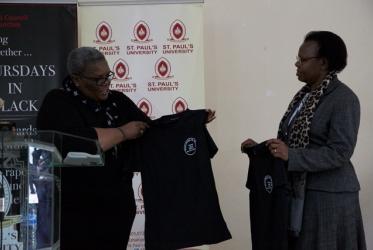Displaying 1 - 18 of 18
South Africans draw hope despite recurring challenges
16 December 2019
WCC delegation meets with South African President Ramaphosa
09 December 2019
Churches in southern Africa stand against violence, xenophobia
10 October 2019
When you strike the women, you strike a rock
18 September 2019
Thursdays in Black: sharing support, transforming lives
21 February 2019
Placing family in the HIV response vanguard
10 December 2015
Addressing the HIV threat through education and training
23 February 2015
Thursdays in Black: zero tolerance for violence against women
11 October 2013
